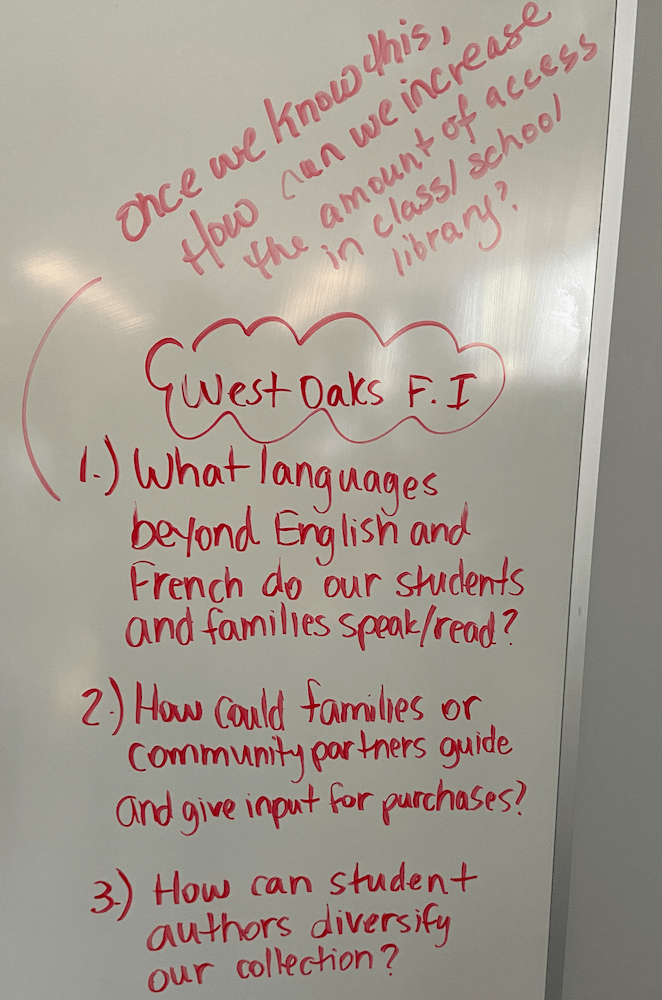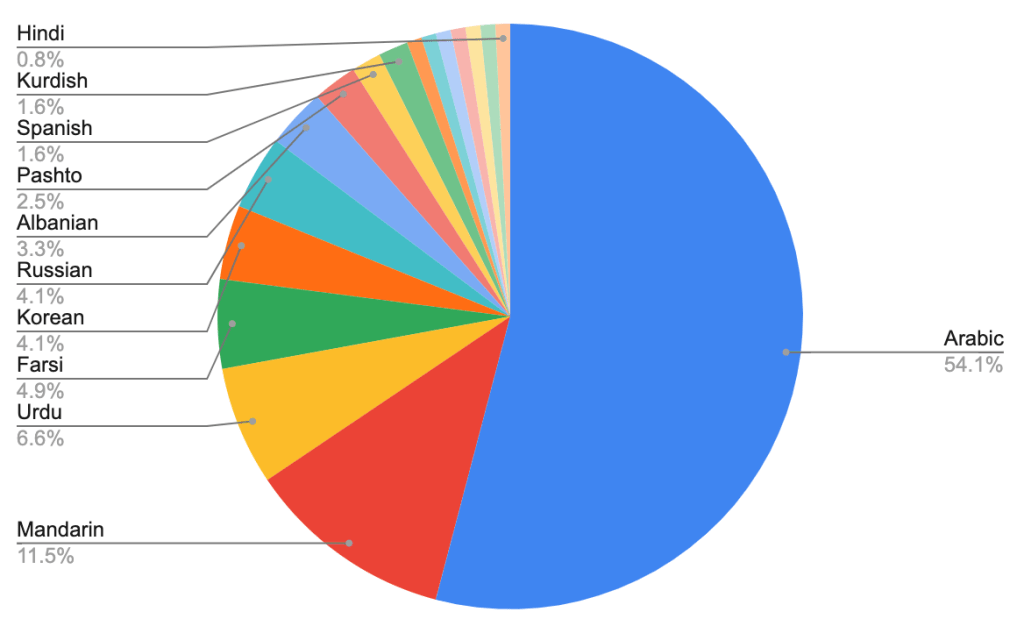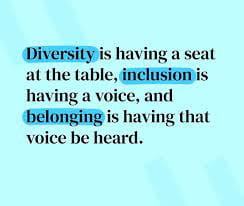Multilingualism is generally understood to mean knowledge of more languages than a native language. It is a language term that moves from monolingualism (knowing one language) beyond bilingualism (knowing two languages) into the realm of knowing many, or multiple, languages.
This year, our school is taking part in an “Inclusive Libraries” project. During our first meeting, my principal, a colleague and I had an actual full day in-person PD with a wonderful breakfast and lunch provided! The meeting took place in a beautiful Library Learning Commons in a school that has a culinary program.
We began the day brainstorming. Generating questions about the needs of our school population. Boiling them down to the top three we felt were most important. Following this, there was a wonderful carousel where we could visit three sessions led by leaders at TVDSB in different fields: FNMI, Multi-language Learners, School Safety, Culturally Responsive and Relevant Pedagogy. Each session was inspiring and helpful. And it was so nice to talk to other educators. It is how I learn best. I am a social-learner for sure.
We left at the end of the day with a bit of a plan to focus on Multilingualism in our French Immersion school to address the following. We were also informed that we were not being given funds to buy books to support our inquiries so we would have to get creative.

First, we needed some data. During our “Meet the Teacher” night, I had cards that said “Libraries are for Everyone” in hundreds of different languages laminated and covering the tables. Families identified their home languages and put them up on a window I had reserved to display the information. I explained our goals – to include more dual-language books and student created books in our library in languages beyond French and English.

Want a copy of these cards? Here is the link: https://www.hafuboti.com/lafelibrary/
Next, the staff at our school helped me out. Through our new Attendance program, we collected information about home languages in the student profiles. I collated all this data and this is what we discovered about our student population. Over one-third of our student population speaks a language (or languages) other than English at home. We have a very multilingual school.

In addition to this, I have my own observations. Students that ask me on a weekly basis for books in Arabic so that their parents can read to them at home. At our recent Scholastic Book Fair, parents were asking for Arabic books. I feel like I have been doing the whole triangulation of data thing. Basing our actions on observations, conversations and products (data).
Now that we understand our school population more deeply, we are moving into action. I am developing a multilingual section in the Library Learning Commons that will include dual-language books (i.e. English and Arabic, French and Mandarin) or books in other languages.. I have asked parents to donate books or suggest titles in our most recent school newsletter. After week 1, I have 4 Spanish books being sent to cataloging. A teacher on staff who is fluent in Spanish read them and vetted them. We have received some wonderful suggestions for Arabic books from our families. One mom sent me a “top ten” list and the titles she has suggested are so wonderful. Our school secretary has been teaching me about how to receive these books through proper channels and processes. My colleague has connections in Lebanon and a family friend is sending us some Arabic books in exchange for some English ones! And I do have a small budget to spend and a vendor that is approved by my school board to purchase from. It is going to be a real team effort.
In addition to this, we are starting a club: we want some older student authors to help create dual-language books. I am not sure if these will be digital, or actual books. Or perhaps a bit of both… but I am excited to see where this leads.
Stay tuned for an update… I feel like we are in the learning phase of this inquiry at the moment. I look forward to gathering some data and feedback from our families on the work once it is up and running. Will it be impactful? And as in all good inquiries, I will definitely share our learning.
Tell me – how are you making your classroom or school library more inclusive?

Featured Image by Robert Anasch on Unsplash
